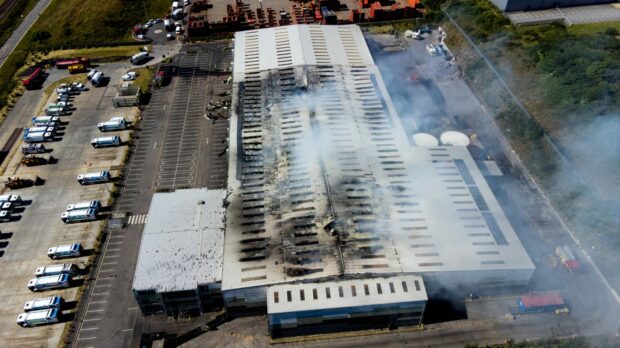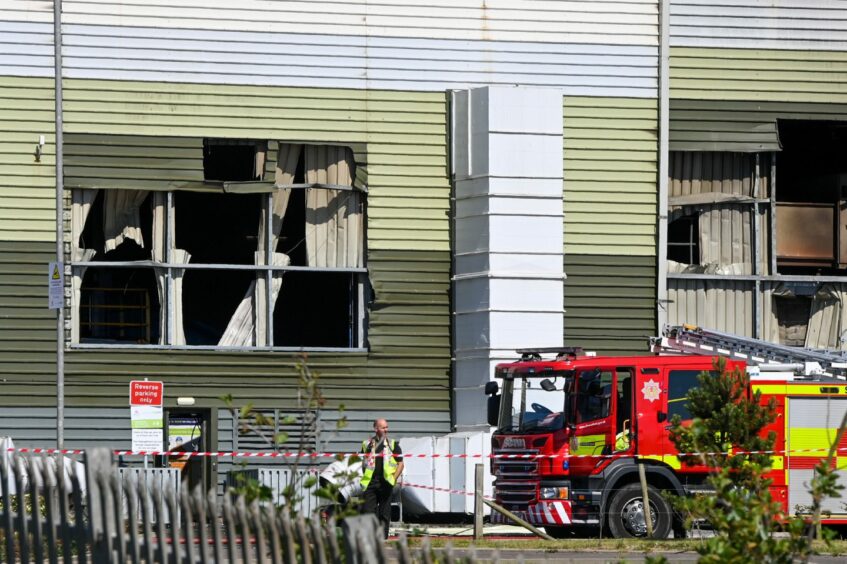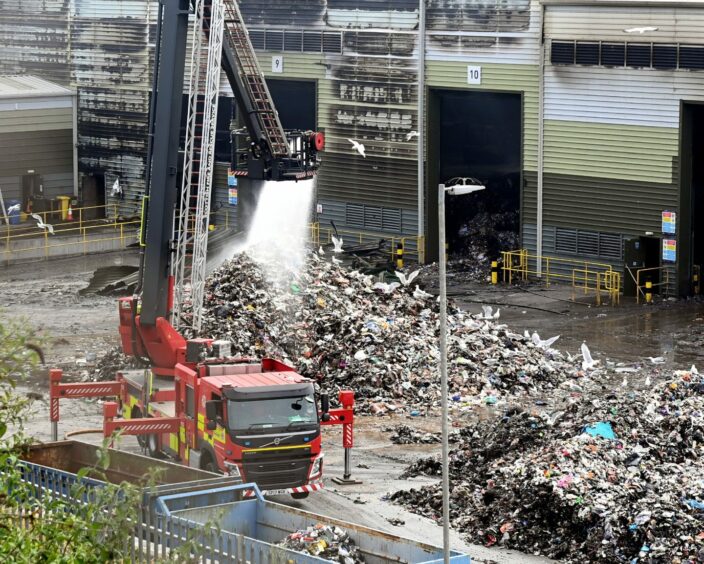Newly released CCTV footage shows how quickly the devastating fire spread at the Altens recycling centre in Aberdeen – which investigators believe was probably caused by a battery.
Suez Recycling and Recovery UK is now participating in the national Take Charge campaign, urging people to dispose of “zombie” batteries responsibly during the festive season.
Bosses have said although it’s “impossible to prove conclusively”, they believe a lithium device was accidentally recycled and was responsible for the fire that engulfed the complex in July.
The fire required more than 100 firefighters to attend the scene at its height and took 118 hours to put out, with residents losing their water supply for some time.
It was later announced the centre, which was built in 2017, would need to be demolished following the blaze.
Waste from Aberdeen continues to be transported nearly 300 miles to Hartlepool, which is the only available facility Suez has that can handle the mix of materials that are recycled in the Granite City.
Blaze branded ‘avoidable’
Colin Forshaw, production operations manager, Suez Recycling and Recovery UK, thanked fire crews for their response and is urging members of the public to dispose of batteries responsibly.
He said: “We would like to take this opportunity to thank the Scottish Fire and Rescue Service for their quick response on the day of the fire at our Altens recycling centre.
“To see such an important facility that provided an essential service for Aberdeen residents be destroyed by something as avoidable as a battery being put in a bin is devastating.”
Aberdeen City Council is supporting the Take Charge campaign and is encouraging people to take batteries and electronic devices to their nearest household waste and recycling centre.
Co-leader Ian Yuill said: “The fire at the Altens East Recycling Centre had a devastating effect on the site.
“We are supporting the Take Charge campaign to encourage everyone to properly dispose of batteries and electronics by taking them to their nearest Household Waste and Recycling Centre or electronics recycling location.
“The campaign highlights the dangers, which we’ve experienced first-hand, of putting these items in the bin and we encourage all our citizens to check our website for advice on where they should take them.”
What are ‘zombie’ batteries?
When thrown away with general rubbish or mixed with other recycling, hidden so-called “zombie” batteries can come back to life and cause serious fires.
Higher-powered lithium-ion batteries found in phones, children’s toys, toothbrushes and even vape devices are particularly prone to causing fires or explosions.
Dead batteries thrown away with other waste and recycling are likely to be crushed or punctured once the waste is collected and processed.
Some battery types can ignite or even explode when they’re damaged in waste collection and treatment processes, setting fire to paper and card and other waste materials.
The fire service has confirmed it is working with key stakeholders and partners to understand the risks that lithium-ion batteries present to communities across Scotland.
Jacob Hayler, executive director of the Environmental Services Association (ESA), said: “This is not just a local problem, but a growing issue we’re seeing across the UK. We urge everyone to help us reduce the growing number of battery fires by recycling all batteries and waste electrical devices responsibly using free local services.
“Less than half of all the batteries sold in the UK are currently recycled, so there is a lot of room for improvement and the more batteries that are recycled properly, the fewer will end up where they shouldn’t be.”
Consumers can find out where to recycle batteries responsibly in their area, and more about the dangers of “zombie” batteries, by visiting the campaign website.



Conversation